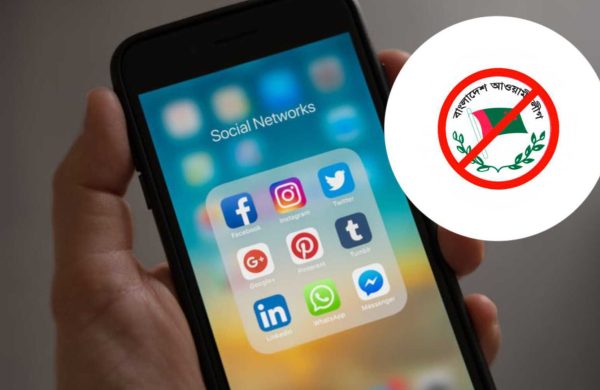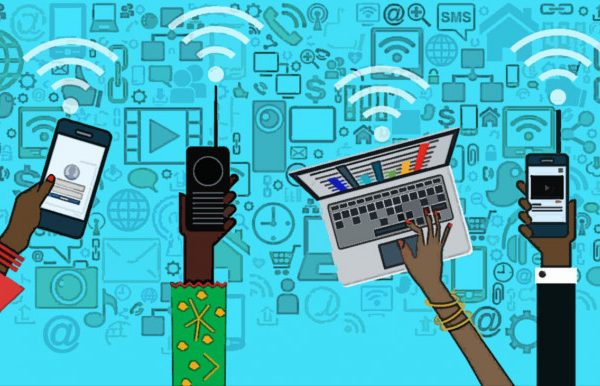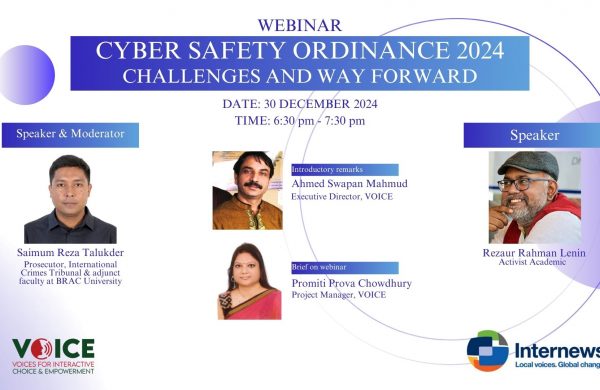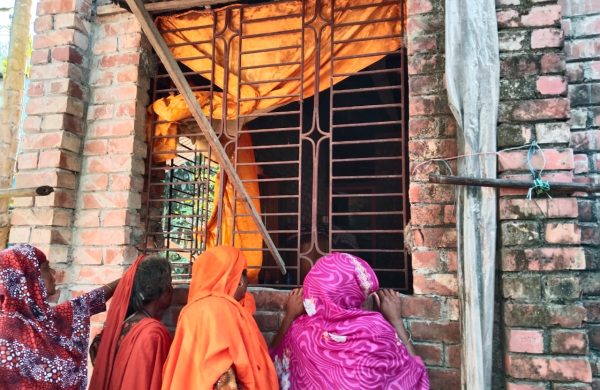Workshop on ‘Combating Technology-Facilitated Gender-Based Violence’ held
- Update Time : Monday, January 20, 2025
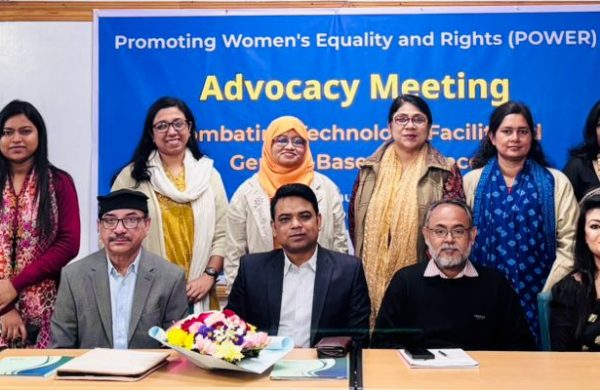
Staff Reporter
The widespread use of the internet and smartphones has led to significant advancements in women’s education and employment opportunities, along with the creation of new income sources. However, this progress has also brought a troubling downside, with a notable rise in online sexual harassment and violence against women facilitated by internet and mobile technologies.
The observation was raised at a workshop titled “Combating Technology-Facilitated Gender-Based Violence” held on Monday in the capital. Research-based advocacy organisation, Voices for Interactive Choice and Empowerment (VOICE) organised the workshop under the “Promoting Women’s Equality and Rights” (POWER) project. Journalists, civil society representatives, human rights activists, academicians, and representatives from organizations providing legal support to victims participated in the workshop.
Speakers at the workshop stressed that social media campaigns, workshops, and awareness-raising activities are essential to inform the public about the various forms of online violence, its impact, and the related laws. They also emphasised the need to prioritise the voices of the victims and increase public awareness about the harmful effects of online sexual violence. Moreover, making necessary support information readily available to the victims is vital.
Mohaiminul Islam, Additional Superintendent of Police, Cyber Investigation and Operation, Criminal Investigation Department of Bangladesh Police, said: “Conducting a case investigation involves multiple steps and barriers, including confiscating the device, sending it for forensic analysis, and contacting platforms like Facebook. Unfortunately, many of the cases we handle are just the tip of the iceberg, as thousands go unreported.”
Supreme Court Advocate Shah NavilaKashphi said: “Although victims file cases, at one point they end up settling with the perpetrator and withdraw the case. So despite having noble intentions, the lawyers struggle to fight for justice.”
Daily Amar Desh Deputy Editor Sultan Mahmud stressed on building capacity of journalists so that they can develop reports on TFGBV aligning withprincipals of gender sensitivity and human rights.
The meeting was led by Ahmed Mahmud Swapan, Executive Director of VOICE, who underscored the crucial need for women to acquire knowledge and skills to safeguard their online security. “It is vital to prioritize training for female human rights activists and journalists in digital security. The training should cover areas such as protecting personal information, securing online accounts, and identifying and preventing online threats,” he stated. Furthermore, he highlighted the importance of creating platforms where women can openly share their experiences, fostering stronger solidarity and empowering them to resist digital violence.
VOICE Deputy Director Musharrat Mahera pointed out that a lack of awareness, deeply ingrained patriarchal attitudes, and the absence of digital literacy are major barriers to tackling cybercrime against women. “Online violence is often dismissed due to gender biases and patriarchal mindsets, allowing perpetrators to go unpunished and perpetuating the cycle of violence. Additionally, media content frequently lacks gender sensitivity,” she remarked.
Certain cybercrimes disproportionately affect women, including stalking, hate speech, morphing (altering a woman’s photo, creating fake profiles, or sending sexually explicit messages), email hacking, sharing intimate photos, blackmail, threats, impersonation or catfishing, and doxxing (the public release of personal information such as addresses, phone numbers, emails, and family details).
To address the issue of online harassment, the Police Cyber Support for Women programme was launched in 2020. By May 2024, 60,808 women had sought assistance for cybercrimes. Among these victims, 41% had experienced doxxing, 18% had their Facebook accounts hacked, 17% were victims of blackmail, 9% were impersonated, and 8% faced issues related to cyberbullying. Many victims initially feel unsure about what steps to take or where to seek help and are often hesitant to involve family or friends in the early stages.
TrishiaNashtaran, Founder and Co-ordinator of the Meye Network, Sharabantahura, Advisor of Nijera Kori, and indigenous rights activist Dalia Chakma spoke among others.


